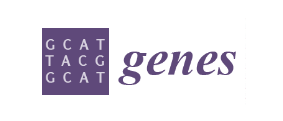Molecular Characterization of a Dirofilaria immitis Cysteine Protease Inhibitor
(Cystatin) and Its Possible Role in Filarial Immune Evasion
Xiaowei Dong, Jing Xu, Hongyu Song, Yuchen Liu, Maodi Wu, Haojie Zhang, Bo Jing,Weimin Lai, Xiaobin Gu, Yue Xie, Xuerong Peng and Guangyou Yang

Abstract
Infection with canine heartworm (Dirofilaria immitis), spread via mosquito vectors, causes coughing, asthma, pneumonia, and bronchitis in humans and other animals. The disease is especially severe and often fatal in dogs and represents a serious threat to public health worldwide. Cysteine protease inhibitors (CPIs), also known as cystatins, are major immunomodulators of the host immune response during nematode infections. Herein, we cloned and expressed the cystatin Di-CPI from D. immitis. Sequence analysis revealed two specific cystatin-like domains, a Q-x-V-x-G motif, and a SND motif. Phylogenetic analysis indicates that Di-CPI is a member of the second subgroup of nematode type II cystatins. Probing ofD. immitistotal proteins with anti-rDi-CPI polyclonal antibody revealed a weak signal, and immunofluorescence-based histochemical analysis showed that native Di-CPI is mainly localized in the cuticle of male and female worms and the gut of male worms. Treatment of canine peripheral blood mononuclear cells (PMBCs) with recombinant Di-CPI induced a Th2-type immune response characterized by high expression of the anti-inflammatory factor interleukin-10. Proliferation assays showed that Di-CPI inhibits the proliferation of canine PMBCs by 15%. Together, the results indicate that Di-CPI might be related to cellular hyporesponsiveness in dirofilariasis and may helpD. immitisto evade the host immune system.
copyright:© 2019 by the authors.
Genes 2019, 10, 300; doi:10.3390/genes10040300
Read Full Text: http://dx.doi.org/10.3390/genes10040300
